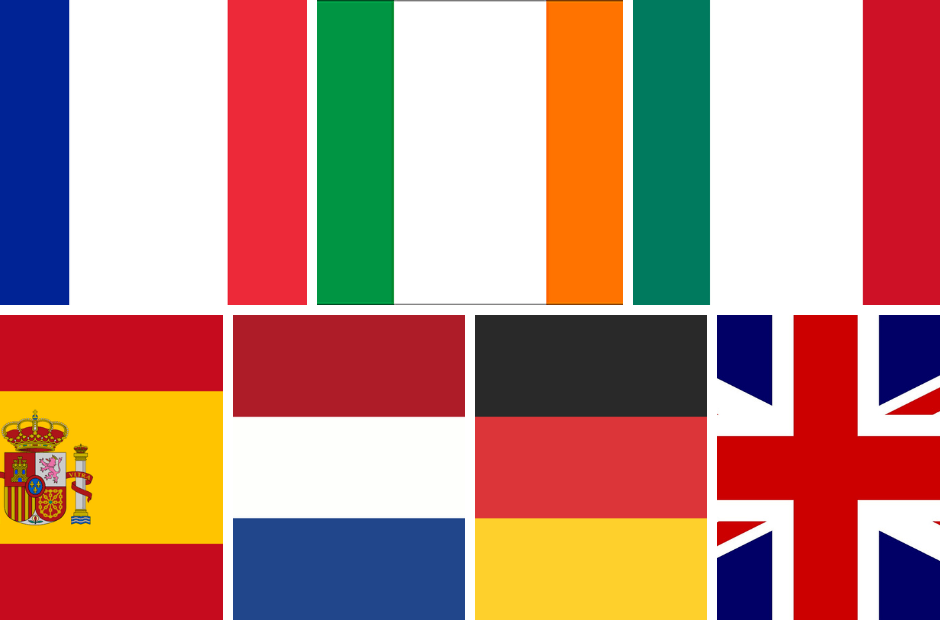Many expats in Brussels and Belgium want to leave their adopted home for the end-of-year festivities now that Christmas is approaching, despite strong advice against it from the authorities.
As other governments also imposed their own rules and restrictions on foreign travellers to prevent the coronavirus from spreading further, this is a non-exhaustive list of what travellers from Belgium have to do to enter other countries in the EU.
Can you go?
Yes, you are allowed to go abroad, as travelling outside of Belgium is not banned. However, the Belgian authorities strictly discourage travelling to red zones - which is almost the entire EU map at the moment.
However, many countries have also put restrictions in place for Belgian travellers, such as quarantining upon arrival and/or getting tested before entering the country.
(Scotland, England, Northern Ireland, Wales)
Currently, travellers from Belgium are allowed to go to the United Kingdom if they quarantine for 14 days upon arrival, with no different rules between nations.
Those who are tested for Covid-19 on arrival in the UK, and receive a negative result, still have to respect the 14-days isolation.
From 15 December, it will be possible to shorten the quarantine period to five days, provided that a Covid-19 test is carried out and gives a negative result.
Additionally, while travel had been allowed – within reason – until the end of the Brexit transition period, that will no longer be the case from 1 January due to the UK no longer falling under rules allowing it.
This means that measures for travelling to and returning from the UK could still change.
While Belgians are allowed to travel to Ireland, the Irish authorities are advising against non-essential travel to the country until further notice.
Travellers entering the country have to quarantine for 14 days upon arrival.
Additionally, as Ireland is one of the few orange zones in the EU, the Belgian authorities recommend "increased vigilance" when in the country. When back in Belgium, getting tested or quarantining is not mandatory.
Belgians travelling to Italy between 21 December and 6 January will have to spend two weeks in quarantine from the day they arrive.
People coming from Belgium also have to show a recent Covid-19 test when they arrive, or be tested on the spot.
Additionally, as the country is a red zone, a 10-day quarantine is mandatory when back in Belgium again.
Under the current measures, France has banned all non-essential journeys to and within the country.
Travellers whose journey is essential can enter, but are obliged to comply with the lockdown measures that apply to the area or department they are staying in, including the obligation to provide the necessary certificates of exceptional movement.
Additionally, the country has closed all its ski resorts.
Travellers from Belgium arriving in the Netherlands have to quarantine for ten days, according to the Dutch authorities.
People travelling to Germany from Belgium have to quarantine for ten days immediately upon arrival in Germany, and immediately inform the local health authorities of their presence on the territory.
Additionally, measures are introduced in Germany at State-level, meaning that additional conditions, on top of the federal ones, can apply.
Mainland Spain and the island of Tenerife are red zones, meaning Belgium strongly advises against going there.
The other major islands - including Lanzarote, La Palma and Gran Canaria - are orange zones, meaning that Foreign Affairs is urging Belgian travellers to be "more vigilant" when they are there. Additionally, quarantining when back in Belgium is asked, but not compulsory.
Travellers arriving in Spain by plane or boat are required to show a recent negative PCR test.
What happens when you come back to Belgium afterwards?
Starting from 18 December, anyone returning from a red zone - such as ski resorts - will have to quarantine for ten days once they are back in Belgium. On day 7, they can get tested. If the test is negative, they can end their quarantine.
In your household, only the person who returns from a red travel zone has to quarantine. This means that you do not have to separate yourself from housemates or family members living under the same roof as you.
However, you should stay at home as much as possible, and only leave the house for essential matters, such as a visit to the doctor, pharmacist or supermarket. Wearing a face mask is recommended, even during contact with the people living in your household.
If the returning traveller is infected, they have to self-isolate for at least seven days. They must not leave the house, someone else should do their groceries, and they should avoid contact with housemates as much as possible. If you do come into contact with them, wear a face mask.
Additionally, in that case, all the other people in the household have to quarantine.
Maïthé Chini & Jules Johnston
The Brussels Times








